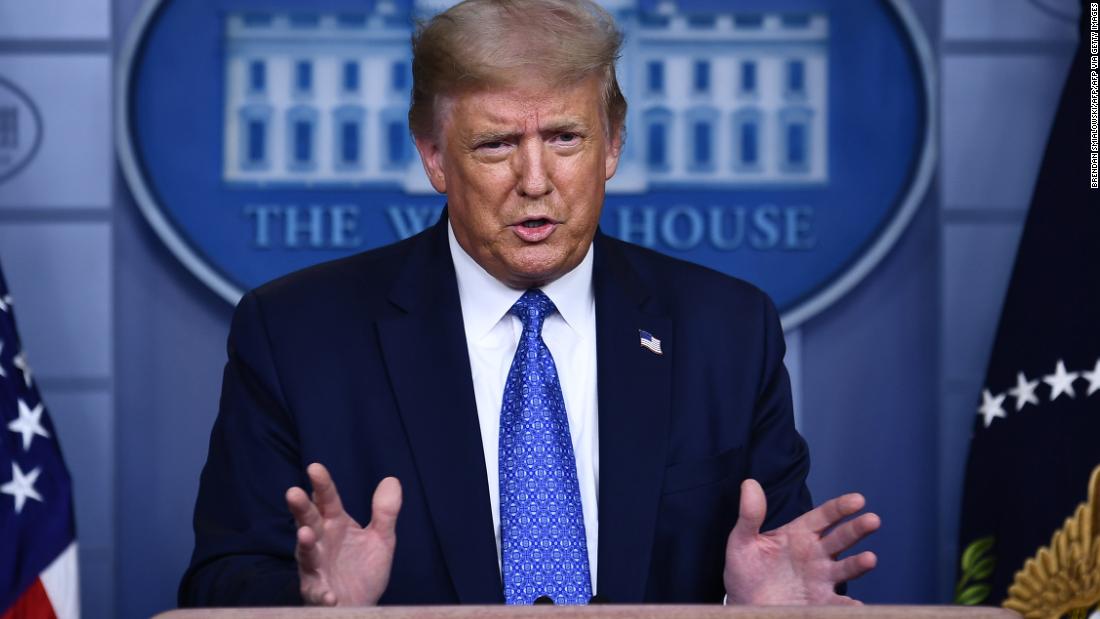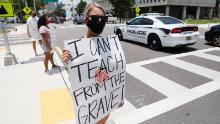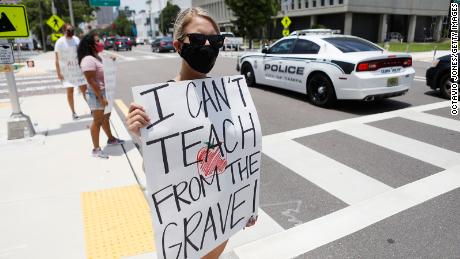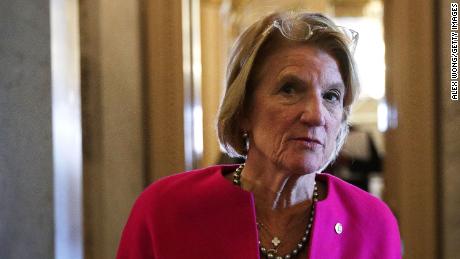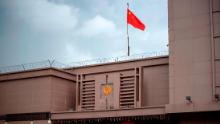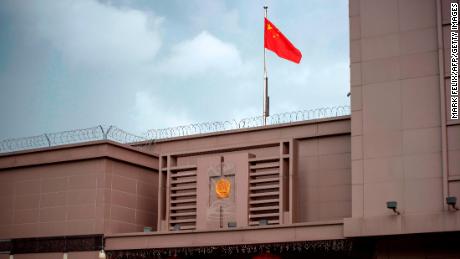The President’s approach is more of a cosmetic political exercise than an effort to provide public health advice
With one poll showing him down 20 points to Democratic presumptive nominee Joe Biden on who can best handle the situation, Trump has taken the rare step of performing a partial reversal — on the wearing of masks — though he is still reluctant to model one in public. He also decided that outright denial of the worst public health crisis in 100 years was not working and has returned to the White House briefing room to spin the disaster as best he can.
The anchor of Trump’s new, punchier briefings is a scripted opening in which he cherry picks the most hopeful aspects of a pandemic that has destroyed the rhythm of American daily life and turned the economy upside down.
But in his two briefings so far, his rejigged approach seems more like a cosmetic political exercise than an attempt to provide the country with meaningful public health advice as the pandemic gets worse.
One problem is that he will not appear alongside public health experts like Dr. Anthony Fauci and Dr. Deborah Birx.
“They’re briefing me, I’m meeting them. I just spoke to Dr. Fauci, Dr. Birx is right outside and they’re giving me all of everything they know as of this point in time and I’m giving the information to you,” Trump said Wednesday.
“I think it’s probably a very concise way of doing it. It seems to be working out very well.”
Trump, however, went on to make misleading statements that would never have been uttered by a public health expert but that he seems to think are politically helpful. He blamed migrants from Mexico crossing the closed border for causing a spike in cases, along with young people attending anti-racism protests.
The President also claimed that kids with strong immune systems don’t bring the coronavirus home and that all schools can open in the fall. He did not provide any scientific evidence for the assertion or explain, for instance, why children who often pick up the flu and colds in class would not be at similar risk for transmitting the coronavirus.
And yet again, Trump claimed falsely that the United States is doing “amazing things” in comparison to other countries as it fights the virus. In fact, the US lags fellow highly industrialized nations in suppressing infection curves and leads the world in infections and deaths.
“The President doesn’t want doctors Fauci or Birx there because they are real time fact checkers,” Dr. Jonathan Reiner, professor of medicine at George Washington University, told CNN’s Kate Bolduan.
“Without them he can say things which are either misleading or out and out false,” Reiner said, using as an example the President’s misleading interpretation of statistics on a positive rate in testing.
“The truth is the truth and the more the public understands, the better the public will adhere to, you know, prudent policy,” he said.
Trump twists science on school openings
Trump’s approach to managing the virus — that tends to put his own political interests ahead of science-based reasoning — extends to reopening schools, which he wants to do so that the country will look like it’s back to some semblance of normality ahead of the fall election.
But experts disagree with his calls.
“He wants to open the schools, regardless of what the science says. And the science is pretty clear. If you open schools in areas or school districts where there’s a high level of virus transmissions, say if you were going to do this in Houston today or San Antonio or Phoenix, it will fail,” said Peter Hotez, dean of the National School of Tropical Medicine at Baylor University.
“It will fail because not only are the kids transmitting the virus but adults, vendors are going in and out of the schools,” Hotez said on CNN’s “The Situation Room with Wolf Blitzer.”
“What will happen within two weeks, teachers will start going into the hospitals, going into ICUs. It’ll be bus drivers, cafeteria workers and parents will start getting sick. It’s untenable. It’s not sustainable.”
The President also dwells on the few positive developments amid a grim time as the country battles a virus that has already killed more than 140,000 Americans.
On Wednesday, he touted a new deal with Pfizer to produce and deliver 100 million doses of a vaccine when it becomes available. With an eye on older voters who have cooled on him, according to latest polls, he announced new measures to help nursing homes and long-term care facilities.
Still, for once, and despite much of his presentation being highly misleading, the President did not destroy his own strategy with ill discipline.
He largely avoided getting sucked into ill-tempered clashes with reporters and got out of the encounter after only a few questions. So if his return to the podium is a political tactic rather than a genuine effort to change his approach on a virus he has minimized and mismanaged, he may have at least done himself a modicum of good in the eyes of his campaign team.
Trump’s law-and-order pitch to the suburbs
Another prong of the President’s refashioned electoral strategy was on display earlier Wednesday when he announced he would “surge” federal law enforcement agents to Chicago and other cities, despite the opposition of local and state officials.
The plan, another way in which Trump has used his executive power to fulfill personal political goals, solidifies his effort to portray Democrats as weak on crime and to create a picture of a nation under siege from radical, anarchistic elements and staggering under what he says are liberal efforts to destroy policing. The move follows the dispatch of federal officials to Portland, Oregon, who have been seen arresting protesters while wearing camouflage uniforms and without identifying their name and rank. Critics have warned that the President is indulging authoritarian tendencies and hyping a law-and-order crisis to discredit Black Lives Matter demonstrations.
“We’ll work every single day to restore public safety, protect our nation’s children and bring violent perpetrators to justice,” Trump said. “We’ve been doing it and you’ve been seeing what’s happening all around the country.”
“We’ve just started this process and frankly we have no choice but to get involved,” the President said, announcing deployments for the FBI, US Marshals Service, the Drug Enforcement Agency and the Bureau of Alcohol, Tobacco and Firearms.
From Trump’s point of view, the effort makes political sense. As Democratic mayors and governors balk at his pressure and say they will not accept Trump’s “troops” and “secret police” on their streets, he can accuse them of not taking the safety of Americans seriously. It’s a pitch aimed directly at suburban voters who have peeled away from Republicans since the 2016 election. Trump has repeatedly hit on law-and-order themes, apparently designed to play on fears of White voters, who Trump thinks see others as an enemy that threatens their vision of traditional American culture.
As a Trump campaign press release put it in an email on Wednesday: “Your family won’t be safe in Biden’s America.”
“The way he deals with people based on the color of their skin, their national origin, where they’re from, is absolutely sickening,” Biden said at a virtual town hall hosted by the Service Employees International Union.
“No sitting president has ever done this,” he said. “Never, never, never. No Republican president has done this. No Democratic president. We’ve had racists, and they’ve existed, that tried to get elected president; he’s the first one that has.”
Trump escalates showdown with China
In another example of the way Trump is using presidential power to bolster a campaign theme, the administration on Wednesday announced the shock closure of China’s consulate in Houston, Texas.
The State Department accused Beijing of engaging in massive illegal spying and influence operations for years, but did not say whether there was an individual incident that triggered the move.
Secretary of State Mike Pompeo has been touring Europe seeking to get the support of US allies in a broad front against Beijing.
There is credible evidence to suggest that China has been stealing US intellectual property and has used its espionage services to try to infiltrate US government, military, science and intelligence establishments.
But the new crackdown, which is accelerating a serious deterioration in ties between the established superpower and the rising power, comes as the White House seeks to scapegoat China — the origin of the novel coronavirus — to cover up Trump’s earlier denials that the pandemic would threaten the US.
But just as he cannot control what happens next with the virus, Trump is now vulnerable to however China might react to the closure of its Houston consulate. While bashing Beijing has long been a tactic in presidential campaigns, it’s not clear that all voters will welcome a new epochal clash with a powerful foreign rival — especially one exacerbated for personal political gain.
![]()


